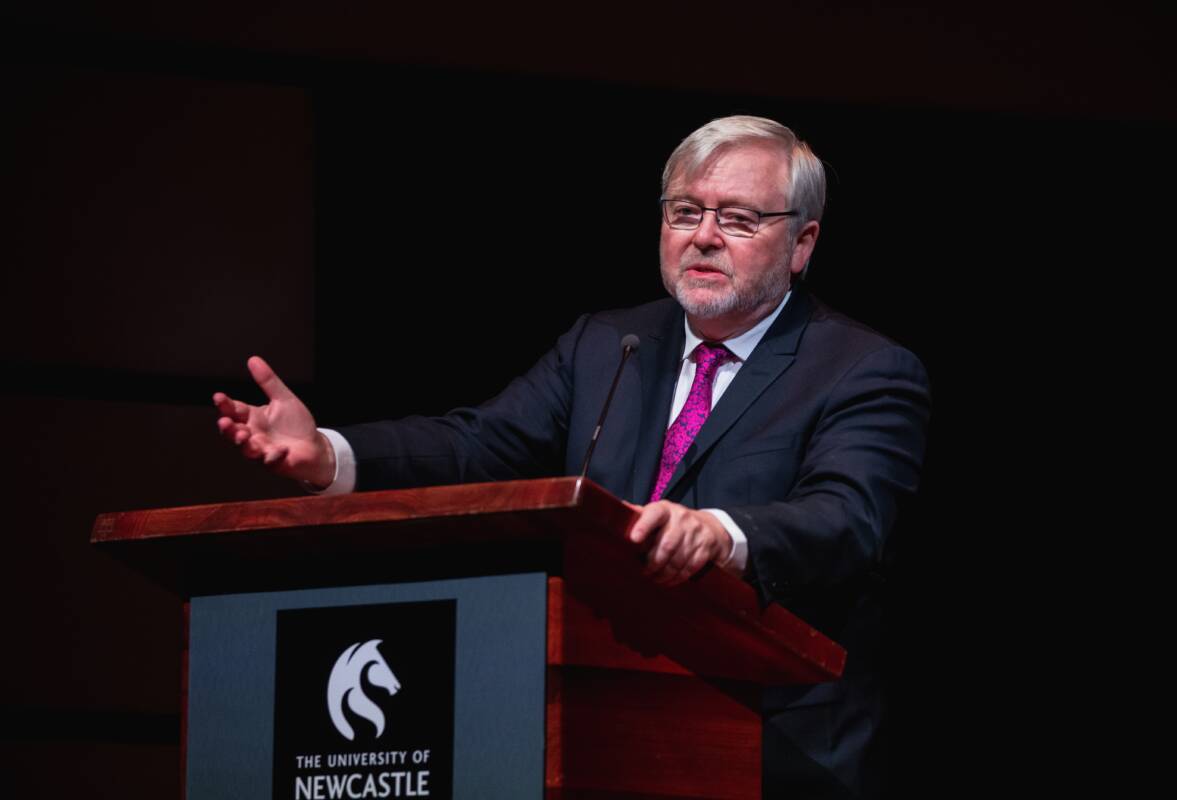
FORMER Prime Minister Kevin Rudd has told a Newcastle audience Australia should be "straining every sinew, every effort, every ounce of our creative imagination" to avoid war between the United States and China.
The University of Newcastle's Asia Pacific Research Centre, in partnership with the Newcastle Institute, arranged for Mr Rudd to speak at the Conservatorium of Music on Tuesday. He recently released his book The Avoidable War.
"There is no such thing as a limited war, there is no such thing as a small war, the interests at stake are so large between these two superpowers of the 21st century, the two largest economies of the 21st century, that the initiation of hostilities rapidly escalates to becoming a general war," Mr Rudd said.
He added there would be "massive" loss of life, the global economy would be plunged into depression and China may deploy weapons of mass destruction. Mr Rudd said in 40 years of studying US and China relations, this was "the first time that I have become anxious".
He said three factors had altered the dynamics: the changing balance of power; Chinese president Xi Jinping switching the national strategy to leverage new-found power and "change China's material external circumstances"; and the United States' response.
He said the US had replaced its policy of strategic engagement with China with a doctrine of strategic competition, believing China wanted to "supplant" the US "as the preeminent regional and global power".
"It has become so dangerous that anything could happen any day," he said.
Mr Rudd said he argued for the concept of "managed strategic competition".
"This is to identify these five sets of strategic red lines: East China Sea, South China Sea, Taiwan Straits, Korean Peninsula, cyber and space, and for the two sides to be able to construct some basic guardrails around each of them, some basic rules of the road... and communicate those to the other side confidentially, so that each side is not on a voyage of daily discovery, testing where those red lines might be before push back occurs."
He said if this can be achieved, "you should be able to define the other domains of the relationship as non lethal strategic competition" and there would be sufficient political and diplomatic space remaining for collaboration in areas including climate change.
He said last week's meeting between Mr Xi and US President Joe Biden was "progress", but there remained the "overhanging challenge of Taiwan" and Mr Xi's plans for reunification by 2049.
Mr Rudd said the world needed to "build a sufficient deterrence... to cause Chinese leaders by the time you get to the early 30s to conclude that still the risk is too great of contemplating that possibility [of war]".







